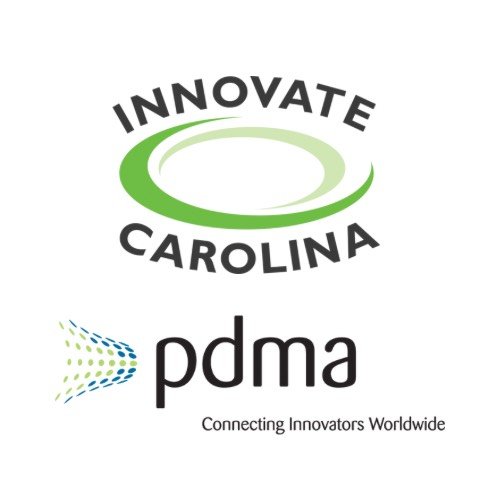7:30 - Registration and breakfast
8:15 - Opening Remarks
8:30 - Keynote Address
Scott Fitzgerald, UNCC Associate Professor of Sociology and Author of Middle Class Meltdown
The challenges facing the middle class are not easily solved. Yet, since prosperous economies depend on the middle class as consumers, some changes are essential. Entrenched and powerful interests, global economic trends, technological change, long-held cultural beliefs, corporate actions, and governmental policies come together to shape the distribution of rewards in our economy and society. Only through innovative transformation of these institutions and trends can we reestablish the security and stability of the American middle class and reverse its meltdown.
9:30 - Tune in to the Market Now
Kirsten Butzow, Instructor, Pragmatic Marketing
Why are some products instant successes while others go down in flames? Is it luck? Magic? Were they just created or marketed by smarter people? The answer to all these questions is “no.” The good news is that there are proven, repeatable product management and marketing processes that technology companies can follow to help ensure that they are “Tuned In” to building the right products for the right markets.
10:20 - Morning Break
10:45
Option A: Marketing in a World of Digital Context
Roger Beasley, Erwin Penland
Omni Channel required us to rethink our business models. In the new reality of Digital Context, we have to reimagine our approach to customer acquisition and loyalty. Why? Because technology hasn't just changed how consumers buy, it has changed the way consumers think, make decisions and approach consumption in general. This presentation will offer insights yielded to date from a two year ethnographic and quantitative consumer study by the Stone Mantel Digital Collaborative, a group of consumer insights professionals representing a host of leading national and global brands.
Option B: Design with your Blind Spots in Mind
Dan Simerman, Skookum Digital Works
A blind spot is defined as “an area in which a person lacks understanding or impartiality.” Blind spots are often found hidden within the methods we use to apply information, the environments in which we work, and how we gather data. New methods of insight gathering such as human centered design, user experience design and agile development help uncover the blind spots that inhibit our ability to effectively work within organizations and solution for our clients. In this conversation, we will review the various ways that innovative organizations and individuals leverage new concepts and frameworks to overcome the inherently strong pull of blind spots.
11:45 - Networking lunch
12:40
Option A: How agility gets faster and better quality insights
Brad White, Partner, Prophet
People lie about why they buy things. Customers can’t tell us what they want next. Even really smart people can’t figure out what consumers need. So what’s an innovator to do? We’ll explore these obstacles and some unconventional solutions for understanding market needs that drive innovation and growth.
Option B: Getting Meaning from Moments: Experience Sampling Through Analytics
Michael Winnick, CEO, Dscout
Traditional qualitative research usually results in one “thick” interview with a relatively small group of people over a fixed period of time: a 2-hour ethnography, a 90-minute focus group. New digital research tools are changing this. You can now gather lots of moments from lots of people over a longer period of time. This changing landscape presents new opportunities and challenges for researchers. In this talk, Michael will discuss tips, tricks and challenges for analyzing this kind of data and the amazing things you can see and learn from sampling moments, rather than memories.
1:40
Option A: Gathering Insights Through Journey Mapping
Marc Bolick and Joel Van Dyke, Managing Partners, Design Thinkers Group
What is the most important principle of human-centered design? At risk of stating the obvious, we believe it is to understand deeply the people who will be impacted by whatever is being designed. In this session, we’ll describe how journey mapping can be employed in multiple ways to gather insights about how new or existing products, services, or processes affect the people involved. Through case studies and short hands-on exercises we will demonstrate how journey mapping can be used with small and large groups alike to reveal hidden insights and gain deeper understanding of stakeholder needs.
Option B: The Household View: Consumer Data as a Source for New Product Opportunities
Joe Cunningham, Manager Market Research and Analytics, Duke Energy
Sometimes traditional market research focuses your attention on how to adjust your marketing mix, but if you look at the data from a different angle, new opportunities emerge. In this session, Joe shares how he leverages "big data" through an interesting project with an outside partner that allowed Duke Energy to uncover unmet needs of their residential customers. We’ll also learn about his process of socializing this new view of the data with his colleagues, along with successes and lessons learned.
2:30 - Afternoon Break
3:00 - Insight, influence, and Leadership: Introducing needs-based innovation into your organization
A panel of practitioners explore the issues of alignment and goals, assessment of your organization's culture and readiness, and pitfalls to avoid.
- Ed Vargas, Shurtape
- Dave Biedermann, Electrolux
- Steve Josey, Railinc
- Nheeda Enriquez, Ally (moderator)
4:00 Closing Keynote
Clifton Vann, President, Livingston and Haven
Everyone understands the value of discovering unmet needs, but too many techniques simply do not provide effective results. Focus groups and surveys are too incremental and many times customers do not recognize their own needs effectively. Clifton will talk about a Deming-based process that expedites success and mitigates risk for any company.
4:30 - Student Innovation Awards and Closing Remarks
>>> REGISTER HERE
